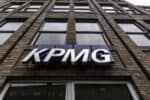If you’re a true-crime podcast junkie or horror mystery lover, chances are you’ve heard of forensic science — using science to investigate and solve crimes. Forensic accounting isn’t too different (minus the blood). Forensic accounting is a type of accounting that “follows the money” and analyzes financial information to look for evidence of potential financial misconduct. Forensic accountants investigate companies’ and people’s financial records and use accounting and legal skills to interpret and communicate their findings to others. If you’re interested in a career in finance with some potential for dramatic, high-profile cases, forensic accounting might be right for you.
What Is Forensic Accounting?
Forensic accounting is a type of accounting where you investigate financial information for potential evidence of crimes. Forensic accountants use accounting, auditing, and investigative skills to understand whether a person or company has committed financial misconduct, such as embezzlement or fraud.

KPMG Career Catalyst: Audit
Learn the tools and skills you need to complete audit planning and testing, then update the client on initial results.
Avg. Time: 3-4 hours
Skills you’ll build: Audit planning, audit deliverable, analytical procedures, data visualizations, presentations
One unique aspect of forensic accounting — different from what a typical accountant does — is that forensic accountants use legal skills to determine if financial activity is illegal and often present their findings in court.
“Forensic accounting encompasses the provision of litigation support and investigation accounting services,” Alan Schachter, senior managing director, economic damages and business valuation at Guidepost Solutions, says. “It provides an accounting analysis that is suitable to the court which will form the basis for discussion, debate, and ultimately dispute resolution.”
What Does a Forensic Accountant Do?
Forensic accountants work on a range of activities to investigate financial crime, from analyzing documents to actually speaking in court. If you’re looking for a career path in finance that also requires work in the legal sector, forensic accounting might be the right career path for you.
Some everyday responsibilities of a forensic accountant include:
- Statement review: reviewing financial statements for inconsistencies or signs of fraud
- Document review: examining financial documents, contracts, invoices, and bank records for investigations
- Fraud detection: identifying fraud activities like embezzlement or money laundering
- Asset tracing: tracing assets to determine who and where they came from and whether they were involved in illegal activity
- Data analysis: applying data analysis to look at large amounts of financial data and spotting any anomalies that might indicate misconduct
- Interviewing: speaking with individuals involved in a case to gather statements
- Expert witness testimony: presenting expert testimony in legal proceedings, usually explaining complex financial concepts
- Due diligence: conducting financial due diligence to assess financial health of a business, investment, or individual
- Litigation support: helping legal teams prepare for trial by providing financial expertise

Mayer Brown Introduction to Litigation
Gather evidence, cross-examine a witness, and prepare closing arguments as part of Mayer Brown's commercial litigation team.
Avg. Time: 1-2 hours
Skills you’ll build: Applying the law, evidence law, research, communication, presentation
What Industries Are Forensic Accounting Jobs In?
Forensic accountants can work in a variety of sectors, whether in public practice or for insurance companies, banks, police forces, or government agencies, Schachter says.
For example, in an accounting firm, these accountants will work on an advisory team or, in a larger company, in a special forensic accounting division. In a consulting firm, they’ll work for a risk management consultant. Lawyers, law enforcement agencies, insurance companies, and government organizations will also hire forensic accountants full-time or on a contract basis.
Forensic Accounting Salary
While the U.S. Bureau of Labor Statistics (BLS) does not have data on forensic accounting salaries specifically, it reports that the average wage for all accountants was $86,740 as of May 2022.
Salaries may depend on what sector the accountant works in; for example, the BLS states that accountants working in finance and insurance had higher average salaries than those working in government. Forensic accountants also tend to make more than a typical accountant; ZipRecruiter reports the average forensic accountant salary is $93,527.
How to Get Into Forensic Accounting
To get into forensic accounting, you’ll need the right education, certifications, and technical and soft skills.
>>MORE: How to Get an Accounting Internship (Even if You Don’t Have Experience)
Education and Certification
Most forensic accountants major in a related field like accounting, finance, or economics to gain their career skills. Some employers require a master’s in accounting or an MBA with a focus on accounting.
>>MORE: 16+ Jobs for Accounting Majors in 2023
Many, but not all, forensic accountants are also certified public accountants (CPAs). CPAs are accountants with a specified amount of experience and education who have passed the CPA exam. While this certification isn’t required, it can help increase forensic accountants’ job prospects and pay and gives them credibility when testifying in court.
Further certification includes the certified fraud examiner (CFE) certification. To become a CFE, forensic accountants need a degree, a CPA certification, relevant work experience, and to pass a series of CFE exams. While this certification isn’t required of forensic accountants, it can further develop their credibility and job prospects and deepen their knowledge of fraud.
Skills
“The general educational background and skill set for general accountants/CPAs and forensic accountants is often very similar, but a forensic accountant must have a more skeptical mindset and should have a general understanding of the legal system,” Matthew Greenblatt, senior managing director at FTI Consulting, says. “[They] should be ready to defend their conclusions in a litigation, including, but not limited to, providing expert testimony in deposition or at trial.”
Other hard skills include:
- Fraud investigation
- Data analysis
- Internal and external auditing techniques
- Writing skills
- Investigate skills
- Interrogative skills
To thrive in both the accounting and legal parts of the role, you also need soft skills like:
>>MORE: Learn the top general accounting skills for your resume.
Pros and Cons of Working in Forensic Accounting
In this field, you never know what case you might work on next — and while some are exciting and high-profile, others can be contentious and even dangerous. We asked forensic accounting experts for the highlights and lowlights of their careers.
“I’ve had the opportunity to work on the largest and highest profile frauds in the history of the world (e.g., the Madoff scandal) all the way to much smaller cases involving breach of contract disputes and highly contested divorce matters,” Greenblatt says.
You need to be “ready to handle anything,” says Robert Bonavito, CPA with over 30 years of forensic accounting experience. This includes dangerous situations and “crazy daily scenarios. For example, I’ve worked with a very dangerous client who had to be handcuffed, straitjacketed, and surrounded by guards. You need to be able to deal with dangerous situations and make tough decisions every day. You also need to be able to sort through cases and decide which ones are worth taking. Sometimes taking on a case is a risk because you’re not sure how it’ll turn out, but you do it because you want to help your client.”
Forensic accounting can lead to stressful situations and cases, but also resolutions that make a positive impact on people’s lives.
“I help people in complex, unique situations,” Bonavito says. “Forensic accounting is truly about helping people.”
Want to see what it’s like to do accounting tasks at a real company? Try a Forage accounting job simulation.
